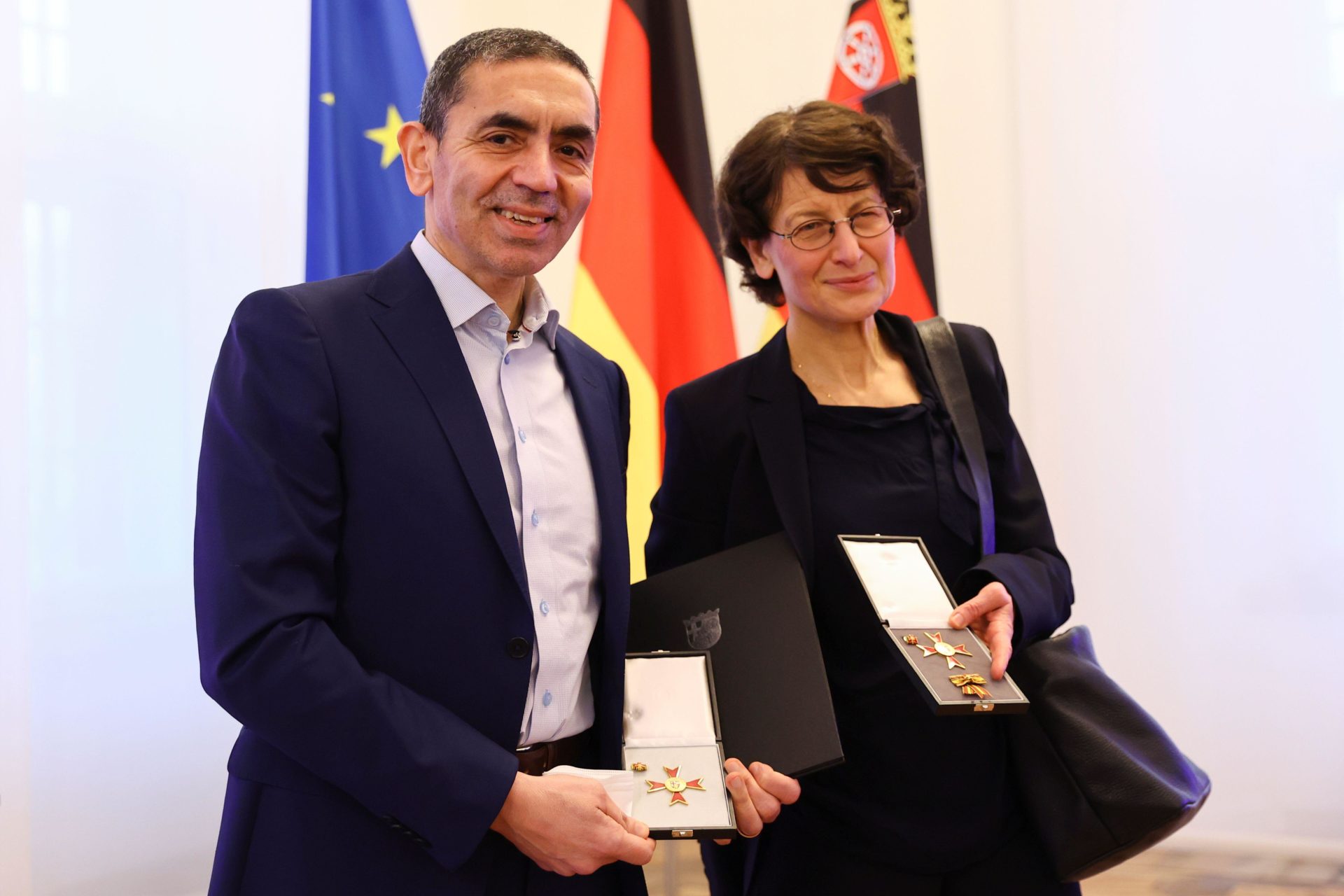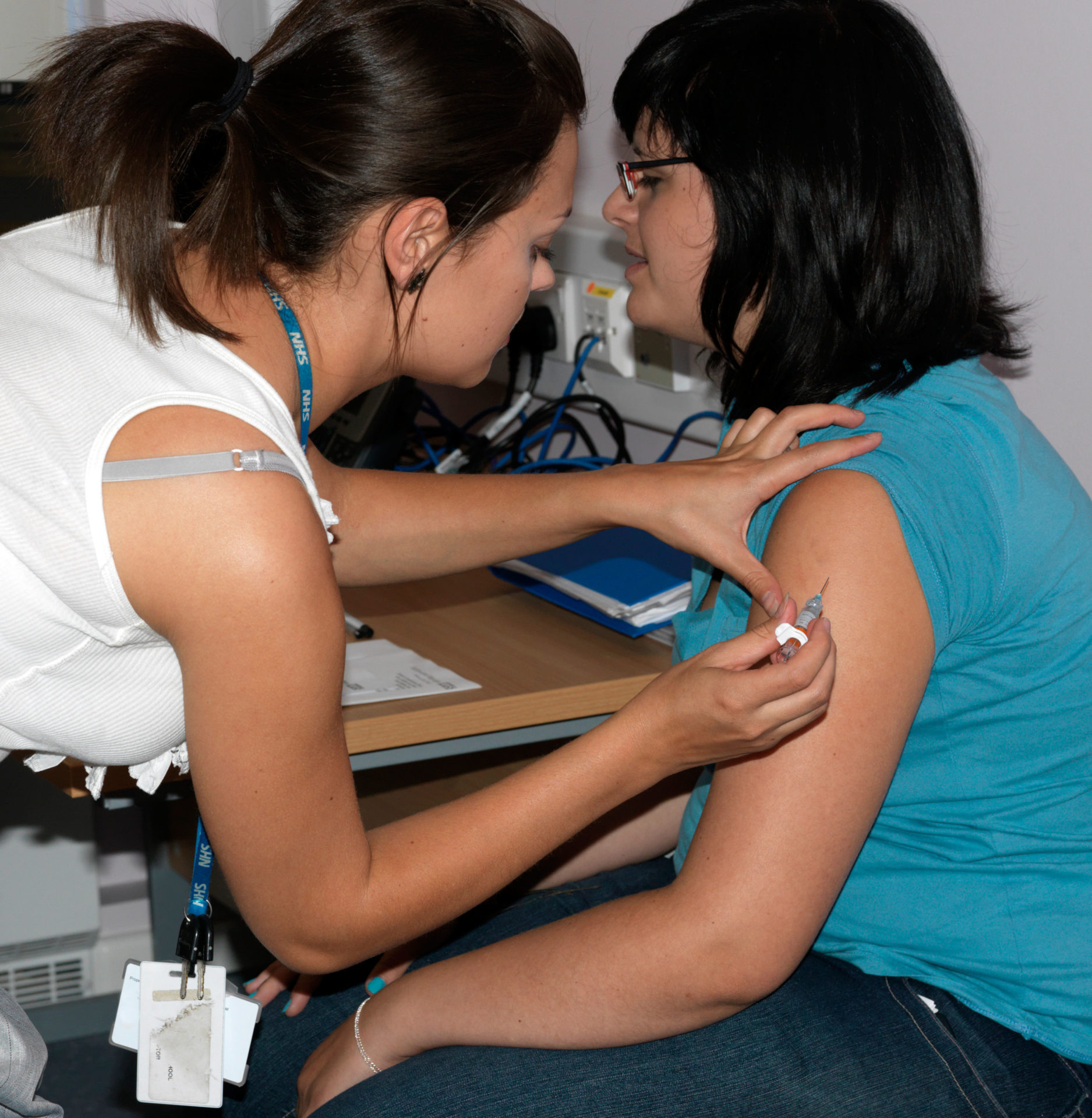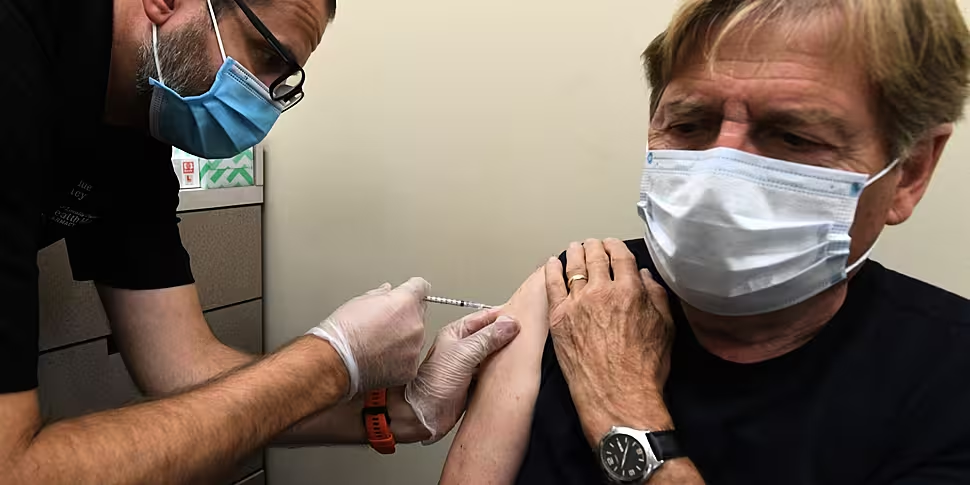Is the end of cancer in sight? The couple behind the COVID vaccine have said the same technology could be used to create a cancer vaccine by 2030.
Husband and wife duo, Professors Ugur Sahin and Ozlem Tureci, founded the company BioNTech in 2008 in order to develop new ways to treat cancer.
In 2020, as the world went into lockdown, they changed the focus of their research to COVID-19 and developed the highly regarded Pfizer/BioNTech vaccine.
With the acute phase of the COVID pandemic over, their focus has shifted back towards cancer and they believe the same messenger RNA (mRNA) technology could be used in a cancer vaccine.
 BioNTech founders Ozlem Tureci and Ugur Sahin pose with the Rhineland-Palatinate Order of Merit prize received from State Premier Malu Dreyer in Mainz, Germany, January 26, 2022. REUTERS/Kai Pfaffenbach
BioNTech founders Ozlem Tureci and Ugur Sahin pose with the Rhineland-Palatinate Order of Merit prize received from State Premier Malu Dreyer in Mainz, Germany, January 26, 2022. REUTERS/Kai Pfaffenbach"mRNA acts as a blueprint and allows you to tell the body to produce the drug or the vaccine,” Professor Tureci told the BBC.
“When you use mRNA as a vaccine, the mRNA is a blueprint for the 'wanted poster' of the enemy - in this case cancer antigens which distinguish cancer cells from normal cells."
Speaking to Newstalk Breakfast, Professor Seamus O’Reilly, a Consultant Medical Oncologist at UCC, said the news was ‘very exciting’.
While to some it might seem outlandish that cancer could be prevented with a simple vaccine, treatments that many years ago would have been considered impossible are now used routinely.
“20 years ago, immunotherapy in lung cancer would have been thought to be just not a runner at all,” he explained.
“Now it’s a standard of care in patients with lung cancer management because of advancements in our understanding of the immune system and our ability to harness that.”
Professor O’Reilly says the reputation of Professors Ugur Sahin and Ozlem Tureci was another reason for optimism.
“These people have done 20 years of research; that research will have been accelerated dramatically because of the pandemic,” he said.
“We’re also seeing in our society the benefits of vaccination against cancer; in our communities we’ve been vaccinating against HPV for over a decade now and if you look at studies in Sweden, they show that the earlier you vaccinate your child, the more effective that is.”
 Teenager having an HPV injection to protect against Cervical Cancer
Teenager having an HPV injection to protect against Cervical CancerEnd of cancer?
However, even if a vaccine is invented, that does not mean that cancer will be completely consigned to the history books; no COVID vaccine was 100% effective at preventing an individual contracting the disease and a cancer vaccine is likely to be similarly imperfect.
“Unfortunately, I think cancer is something we’re going to have to live with as a society,” Professor O’Reilly said.
“It will be there for our lifetimes. What we’re going to get better at is learning how to prevent it… and I think we’re going to have better, more effective treatments so patients who have cancer have better quality of survival”.
Main image: A man receives a COVID vaccine. Picture by: Mark Hertzberg/ZUMA Press Wire.









